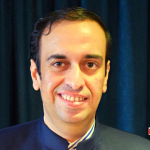The large dragon baby numbers translate to greater competition for jobs

People born in the Year of the Dragon are often said to be smart, ambitious, passionate, and above all else, auspicious to their family. Malaysia has consistently seen a spike in live births during the years of the Dragon.
To understand the underlying impact of the Dragon babies and their unique disposition in Malaysia, INTI International University & Colleges (INTI) commissioned a first-ever survey of more than 315 respondents, comprising of Dragons (aged 18 and 30 years old this year) and non-Dragon individuals, through a series of in-depth interviews and quantitative surveys.
The survey sought to understand what defines Dragon babies and whether they are different from other zodiac individuals – setting the stage for what higher education institutions and organizations should know in preparing for the influx of a unique group of students and future professionals.
The study showed that Dragon babies are very driven to advance their status in life, either to achieve financial security and material possessions (ranked by 95% of 30-year-old respondents and 41% of 18-year-old respondents), for career advancement (ranked by 41% of 30-year-old respondents, which was significantly higher than non-Dragons where only 25% ranked this as their goal) and to pursue further studies (ranked by 45% of the 18-year-old respondents).

The study also found that almost half of the 18-year-old and 30-year-old respondents’ groups surveyed identified being hard working as the key contributor to their success.
Rather than any in-born advantages, this seemed to suggest that even if Dragon babies believe that they were “born to succeed”, they realized that being hardworking is still a key determinant to success in life and appear willing to put in the effort in order to achieve their goals.
Surprisingly, given the cultural perception and expectations on Dragon babies to succeed, non- Dragon respondents experienced higher familial expectations than their Dragon counterparts in this study, particularly in having good career achievements (29% from non-Dragons versus 18% from Dragons), although Dragons are ranked with higher expectations to be financially secure (10% for Dragons versus 5% from non-Dragons).
Despite the large Dragon cohorts, 64% of the 18-year-old respondents were confident in their ability to secure jobs after graduating, contrary to INTI’s 2015 survey on Gen Z which revealed that 56% of Gen Zs’ are concerned about not getting jobs after graduating.
There were still concerns raised by Dragons in entering the workplace however, including the inability to get along with colleagues (14%), having a job that may not meet their expectations (13%) and low salaries (8%).
The survey also revealed that all three respondent groups ranked communication, problem solving and teamwork as the three most important skills to thrive in the workplace.
However, all three groups ranked digital skills as one of the least important skills, contrary to INTI’s 2016 survey on the dichotomy between employers and graduates, which found that digital literacy is regarded by employers (30%) as the most essential skillset for today’s workplace.

“With continuous changes in the job landscape and in the educational approach with the next generation of students, institutions of higher learning must reinvent their education offerings to meet the widening scope of expectations.
“To ensure that we prepare our graduates to meet these expectations, INTI collaborates with industry partners in providing practical learning based on market needs. Integrated modules from IBM’s Innovation Centre for Education and Alibaba’s Global Ecommerce Talents programme enhance digital literacy and help students to gain expertise in analytics, cloud computing, and e-commerce – skillsets that are essential in today’s work place,” said Tan Lin Nah, Chief Operating Officer of INTI.
MARKETING Magazine is not responsible for the content of external sites.








